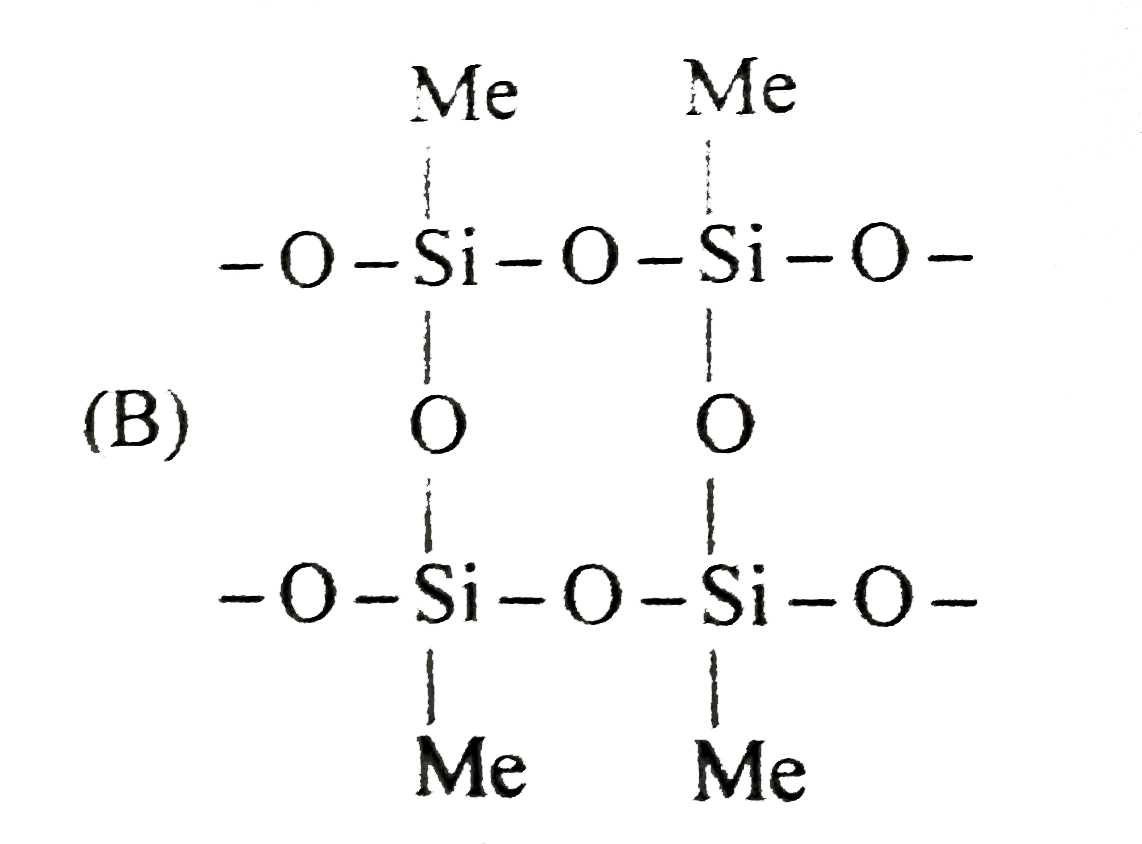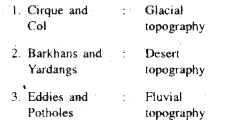Starting from SiCl4 prepare the following in steps not exceeding the number give in parantheses ( give reaction only )
a. Silicon (1)
b. Linear silicon containing methyl groups only (4)
c. Na2SiO3(3).
Step by step video, text & image solution for Starting from SiCl_4 prepare the following in steps not exceeding the number give in parantheses ( give reaction only ) a. Silicon (1) b. Linear silicon containing methyl groups only (4) c. Na_2 SiO_3 (3) . by Chemistry experts to help you in doubts & scoring excellent marks in Class 12 exams.
Topper's Solved these Questions
- BOOK - IIT-JEE PREVIOUS YEAR (CHEMISTRY)CHAPTER - P BLOCK ELEMENTSEXERCISE - Test16videos
P BLOCK ELEMENTS
- BOOK - IIT-JEE PREVIOUS YEAR (CHEMISTRY)CHAPTER - P BLOCK ELEMENTSEXERCISE - Objective Questions I49videos
P BLOCK ELEMENTS
- BOOK - IIT-JEE PREVIOUS YEAR (CHEMISTRY)CHAPTER - ORGANIC CHEMISTRY BASICSEXERCISE - CHAPTER TEST2videos
ORGANIC CHEMISTRY BASICS
- BOOK - IIT-JEE PREVIOUS YEAR (CHEMISTRY)CHAPTER - PERIODIC CLASSIFICATION AND PERIODIC PROPERTIESEXERCISE - COMPREHENSION_TYPE3videos
PERIODIC CLASSIFICATION AND PERIODIC PROPERTIES
Similar Questions
Statring form SiCl4 prepare the following in steps not exceeding the aumber give in parnthese ( give reaction only )
a. Sillicon (1)
b. Linear sillicon containing methyl froups obnly (4)
c. Na2SiO(3).View SolutionStarting from SiCl4 prepare the following in steps not exceeding the number give in parantheses ( give reaction only )
a. Silicon (1)
b. Linear silicon containing methyl groups only (4)
c. Na2SiO3(3).View Solution
Knowledge Check
- Question 1 - Select One
Arrange the following words as per order in the dictionary.
1. Silt 2 . Silicon 3. Silicate 4. SilkenA1 4 3 2B3 2 4 1C4 1 3 2D2 1 4 3 - Question 2 - Select One
Read the following write-ups and answer the question at the end of it.
Silicones are synthetic polymers containing repeated R2SiO units. Since, the empirical formula is that of a ketone (R2CO) , the name silicone has been given to these materials. Silicones can be made into oils, rubbery elastomers and resins. They find a variety of applications because of their chemical inertness, water repelling nature, heat-resistance and good electrical insulating property. Commerical silicon polymers are usually methyl derivatives and to a lesser extent phenyl derivatives and are synthesised by the hydrolysis of
R2SiCl2[R=methyl (Me) or phenyl(ϕ)]
Me2SiCl2H2O−−→O−Me∣Si∣Me−O−Me∣Si∣Me−O−Me∣Si∣Me−O
If we start with MeSiCl3 as the starting material, silicones formed is :A B
B CBoth of the aboveDNone of the above
CBoth of the aboveDNone of the above - Question 3 - Select One
Read the following write-ups and answer the questions at the end of it.
Silicons are synthetic polymers containing repeated R2SiO unit. Since, the imperical formula of a ketone (R2CO), the name silicone has been given to this materials. silicons can be made into oils, rubberly elastamors and resins. They find a variety of applications because of their chemical inertness,water repelling nature, heat-resistence and good electrical insulating property.
Commercial silicone polymers are usally methyl derivatives and to lesser a extent phenyl derivatives and are synthesised by the hydrolysis of
R2SiCl2 [R =methyl (Me) or phenyl (ϕ)]
Me2SiCl2H2O−−→O−Me∣Si∣Me−O−Me∣Si∣Me−O−Me∣Si∣Me−O−
If we start with MeSiCl3 as the starting material, silicons formed is :AMe−Me∣Si∣Me−O−Me∣Si∣Me−O−Me∣Si∣Me−O−Me∣Si∣Me−MeB CNoth of the aboveDNone of the above
CNoth of the aboveDNone of the above
Which among the following pairs are correct?

Select the correct answer using the code given below:
(a) 1, 2 and 3
(b) 1 and 2 only
(c) 2 and 3 only
(d) 1 and 3 onlyView SolutionSilicon is the second most abundant element (~27.2%) in the earth's after oxygen (45.5%) Carbon. Silicon, germanium, tin and lead constitute the group 14 of the periodic table. Chemistry of silicon is distinctly different from that of carbon.
For example, under standard conditions CO2 is a gas whereas SiO2 is a covalent solid.
Silicon can be purified by converted it into volatile SiCl4(b.p.58∘C) which is purified by fractional distillation SiCl4 can then be converted into Si using molecular hydrogen. Write the balanced equations for the reactions involved.
Silicon is widely used in semiconductor industry in which the required is of the order of 1 part per billion. This can be achieved using "zone refining technique". The technique involves moving a heater coil across an impure Si rod.View SolutionGive the structure for each of the following
4-Methyl-1, 3-hexadieneView SolutionGive reasons for the following
(a) CCl4 is immiscible in water, whereas SiCl4 is easily hydrolysed.
(b) Carbon has a strong tendency for catenation compared to silicon.View SolutionSilicon is the second most abundant element (~27.2%) in the earth's after oxygen (45.5%) Carbon. Silicon, germanium, tin and lead constitute the group 14 of the periodic table. Chemistry of silicon is distinctly different from that of carbon.
For example, under standard conditions CO2 is a gas whereas SiO2 is a covalent solid.
Glass, made of SiO2,Na2SiO3 and CaSiO3 is attacked by hydrofluoric acid with formation of SiF2−6 anion. The analogous CF2−6 anion does not exist. The reason/s is/are :
(a)carbon is more electronegative than silicon
(b)silicon has larger atomic size than carbon
(c)silicon has 3d orbitals which form an sp3d2 hybrid orbitals
(d)carbon and fluorine have comparable atomic sizesView Solution

